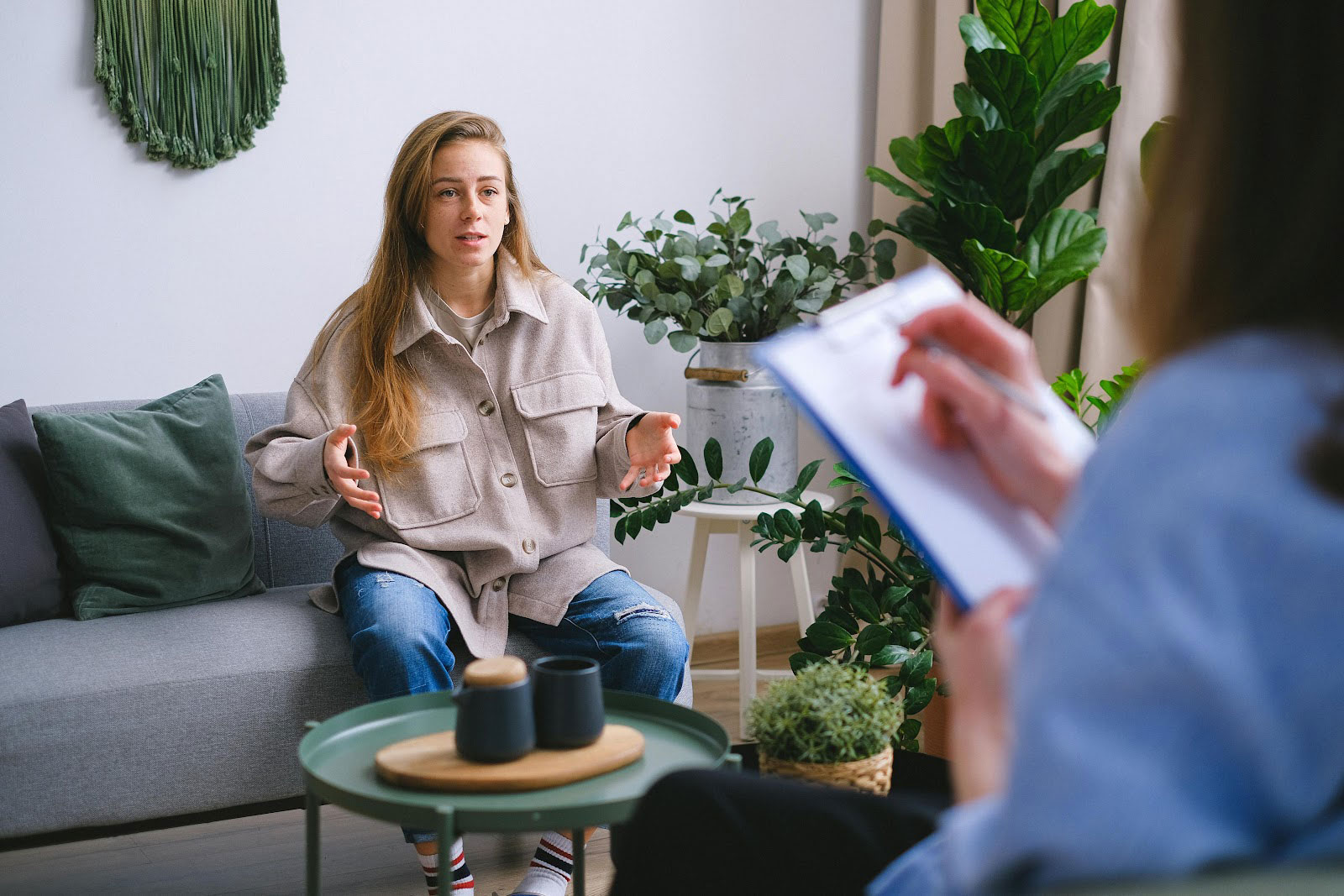Art and music therapy have emerged as integral components of Intensive Outpatient Programs (IOPs), offering unique modalities for emotional expression and healing. These therapeutic approaches not only assist individuals in articulating their feelings surrounding addiction, but they also foster a sense of community and shared experience. As participants engage in creative processes, they may uncover deeper insights into their personal challenges and strengths. However, the effectiveness of these therapies can vary considerably based on individual circumstances, raising critical questions about their implementation and outcomes in diverse populations. What factors contribute to their success in these settings?
Understanding IOPs and Their Benefits
When considering the journey toward recovery from alcohol or drug abuse, understanding Intensive Outpatient Programs (IOPs) can greatly illuminate your path. IOPs serve as a bridge for individuals evolving from a structured treatment environment into everyday life, offering a flexible yet intensive approach to recovery. Unlike traditional inpatient programs, IOPs allow participants to maintain their daily responsibilities while receiving thorough support, often involving several hours of therapy each week. The benefits of IOPs are manifold. First, they provide a safe space for individuals to confront their challenges, guided by trained professionals who understand the complexities of addiction. This structured environment fosters a sense of community, where participants can share their experiences and learn from one another, creating connections that are crucial for emotional healing.
Additionally, IOPs emphasize skill-building and relapse prevention strategies, equipping individuals with the tools necessary to navigate triggers and stressors that may arise in daily life. Moreover, IOPs often incorporate various therapeutic modalities, including group therapy, individual counseling, and holistic approaches. This diverse range of treatment options caters to the unique needs of each participant, promoting a tailored recovery experience. As individuals engage in this supportive framework, they are not only working toward sobriety but also rediscovering their passions and strengths, laying the groundwork for a fulfilling life beyond addiction.
The Impact of Art Therapy
Art therapy stands out as a powerful component within Intensive Outpatient Programs (IOPs), offering a unique avenue for self-expression and emotional exploration. This therapeutic approach transcends traditional talk therapy, allowing individuals to engage with their emotions through various artistic mediums. Whether it’s painting, drawing, or sculpting, the process of creating art provides a non-verbal outlet, making it particularly effective for those grappling with the complexities of addiction. The impact of art therapy in IOPs is multifaceted. It serves as a bridge for individuals to access their emotions, often uncovering feelings that may be difficult to articulate. In the safe space of an art therapy session, participants can confront their struggles with substance use, channeling their experiences into tangible creations. This act of creation fosters a sense of accomplishment and personal agency, which can be profoundly transformative.
Moreover, art therapy promotes mindfulness and presence, encouraging individuals to focus on the moment and the creative process rather than their past or future anxieties. This grounding effect can alleviate feelings of isolation and foster a sense of community among participants, as they share their creations and experiences with others on a similar journey. Ultimately, the impact of art therapy extends beyond the confines of the therapy room. It empowers individuals to explore their identity, process trauma, and cultivate resilience, equipping them with creative tools that can support their recovery long after the program wraps up.
The Benefits of Music Therapy
Music therapy emerges as an essential resource within Intensive Outpatient Programs (IOPs), offering individuals a melodic path to healing and self-discovery. This therapeutic approach harnesses the power of music to foster emotional expression, enhance communication, and facilitate personal growth. For those grappling with substance abuse, the integration of music therapy can serve as a transformative force, allowing participants to explore their feelings and experiences in a safe and supportive environment. One of the primary benefits of music therapy is its ability to evoke emotions and memories that might be too difficult to articulate verbally. By engaging with music—whether through listening, songwriting, or playing instruments—individuals can access and process complex feelings surrounding their addiction. This emotional release can be cathartic, paving the way for deeper self-reflection and understanding.
Additionally, music therapy promotes social connection among participants. Group sessions encourage collaboration and shared experiences, reducing feelings of isolation that often accompany addiction. This sense of community can be invaluable, as individuals find solace in knowing they are not alone in their struggles. Moreover, the rhythmic and melodic aspects of music can have a calming effect on the mind and body, reducing anxiety and stress levels. This relaxation can enhance focus and motivation, aiding individuals in their recovery journey. Ultimately, music therapy not only enriches the IOP experience but also empowers individuals to reclaim their identities and foster resilience, setting the stage for lasting change and healing.

Final Thoughts
Art and music therapy serve as invaluable tools within Intensive Outpatient Programs, enriching the recovery process by fostering emotional expression and personal growth. These modalities not only facilitate a deeper understanding of complex feelings but also promote resilience and social connections among participants. By integrating creative practices, IOPs empower individuals to redefine their identities and find purpose in their journeys, paving the way for healing and transformation in the face of addiction.
If you or someone you care about is grappling with substance abuse, remember that support is within reach. At Bluecrest, we provide an intensive outpatient program customized to suit individual needs, fostering recovery and optimism. Our team of devoted professionals is dedicated to offering the guidance, support, and tools needed to navigate the path to sobriety.
Frequently Asked Questions
What Is the Structure of an IOP Program?
An Intensive Outpatient Program (IOP) typically consists of a structured schedule that includes therapy sessions, education, and support activities. Participants engage in group and individual therapy, often meeting multiple times a week, while also developing coping strategies and life skills. The focus is on fostering recovery while allowing individuals to maintain their daily responsibilities. This balance aims to create a supportive environment that encourages personal growth and healing.
How Long Does Art and Music Therapy Last in IOPs?
Art and music therapy sessions within Intensive Outpatient Programs (IOPs) typically last between 45 minutes to an hour. These sessions are designed to offer a creative outlet for individuals, allowing them to express emotions and experiences that may be difficult to articulate. The duration may vary depending on the program’s structure and specific therapeutic goals. Ultimately, these therapies foster a sense of connection and healing, enhancing the overall recovery experience.
Are Art and Music Therapy Sessions Mandatory in IOPs?
In Intensive Outpatient Programs (IOPs), art and music therapy sessions are typically not mandatory. However, they are often highly encouraged due to their therapeutic benefits, fostering emotional expression and healing. Participation in these sessions can enhance the overall recovery experience by providing alternative avenues for self-exploration and communication. Ultimately, individuals are empowered to choose their participation level, allowing for a more personalized approach to their healing journey.
Can I Participate in Both Art and Music Therapy?
Yes, you can participate in both art and music therapy sessions, as many programs encourage a multidisciplinary approach to healing. Engaging in various therapeutic modalities can enhance your recovery experience, allowing for personal expression and emotional exploration. Each form of therapy offers unique benefits, enabling you to discover new coping strategies and foster connections with others. Embrace the opportunity to explore both art and music, as they can greatly enrich your journey toward recovery.
What Qualifications Do Art and Music Therapists Have in IOPs?
Art and music therapists typically hold a master’s degree in their respective fields and are often required to be licensed or certified. They undergo extensive training in therapeutic techniques and modalities, equipping them to facilitate healing through creative expression. These professionals possess a deep understanding of emotional and psychological challenges, enabling them to create a safe and supportive environment for individuals seeking recovery from substance abuse. Their expertise fosters personal growth and enhances the therapeutic experience.


